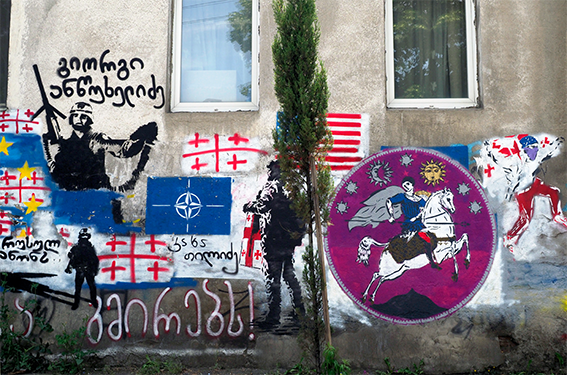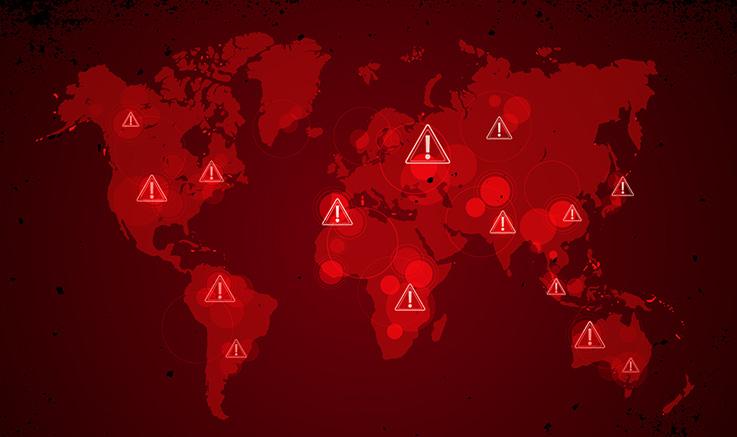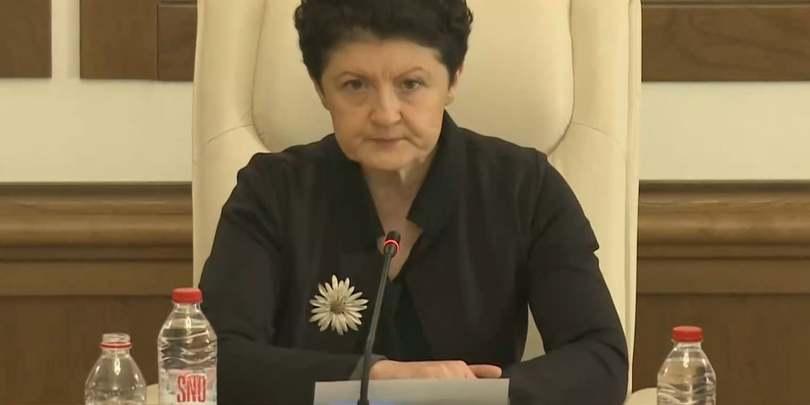Author : Katrin Bannach

When I moved to Georgia in February 2022, my aim was to raise awareness about the South Caucasus region in Germany and promote liberal democracy in a European context. What I didn’t anticipate was that Georgia would soon become a cautionary tale—as the ruling Georgian Dream party turned its back on Western partners and broke up with its European future, against the backdrop of Putin’s brutal war in Ukraine.
Georgia’s Descent into Autocracy Over the past three years, I have witnessed Georgia’s rapid and deliberate slide into autocracy. The groundwork was laid long before 2022, through oligarch Bidzina Ivanishvili systematically weakening of democratic institutions. But the shift accelerated when the EU offered a membership perspective. The pro-Western mask fell, revealing a government no longer even pretending to share democratic values. Today, Georgia appears intent on aligning with autocracies.
The signs are unmistakable. Since the rigged elections in October 2024, the Georgian Dream is quickly pushing through one after the other repressive legislation targeting civil society, the media, opposition voices, and freedom of assembly. These laws are not about justice or stability. They are worst-case examples of rule by law, not rule of law. Meanwhile, the so-called government has been intensifying hate speech against former Western partners, rewriting history to whitewash Russian responsibility, and reframing dissent as treason.
A Global Pattern: Georgia Mirrors “Autocracy, Inc.”
What’s happening in Georgia is part of a broader trend that Anne Applebaum describes in her book Autocracy, Inc.: a loose but powerful network of modern autocrats united not by ideology, but by shared interests — self-preservation, the accumulation of wealth, and suppression of accountability. These regimes collaborate across borders, exchanging technologies, financial support, and strategies.
Georgian Dream fits neatly into this model. Its leadership borrows heavily from the authoritarian playbook: invoking “traditional family values” to suppress LGBTQI+ rights, using “national sovereignty” to attack foreign-funded NGOs, and weaponizing “transparency” to discredit independent media. These tactics may appear domestic but echo strategies used from Moscow to Budapest to Beijing. Russian-style narratives — about family, sovereignty, stability, and the “deep state”— have been amplified loudly by Georgian Dream.
Echoes in Europe: From Tbilisi to Berlin
What makes Georgia’s case especially urgent is it mirrors developments in the Western world. The same narratives — about foreign interference, decline of traditional values and national identity — are increasingly voiced by far-right parties across the EU and elsewhere. One can imagine Georgian Dream dreaming of a European Union drifting into the same illiberalism.
Autocracy doesn’t always arrive with tanks. Sometimes it seeps in through slogans, inquiries, and calculated attacks on open society. Georgia shows us where this logic leads. What starts as political messaging hardens into policy; what begins as scapegoating ends in repression. Georgia is a prism through which we can understand the trajectory of illiberalism elsewhere.
As Germans, We Recognize the Signs
We cannot watch this without remembering our own past. In just one century, Germany experienced two authoritarian regimes — each with devastating consequences. Georgians, too, shook off Soviet authoritarianism and dared to imagine a democratic future. What should unite us today is more than shared policy goals. It is a shared vision: open societies, human dignity, pluralism, peace — and a shared fear of suppression, cronyism, and war.
The Descent Deepens
For many months, Georgians have taken to the streets to protest accelerated authoritarianism. Their message is clear: this is not the future they want. Yet the so-called government remains unmoved. Laws are tighten, media is harassed, and civil society is treated like an enemy. The language of democracy remains — but only as a mask. The vision of a European future, though still cherished by many, grows dimmer. In its place rises a system built not on consensus or rights, but on loyalty, fear, and control. This is not a Georgian version of democracy — it’s a calibrated system of repressive rule built on disinformation.
Why does the government continue down this road? Is it fear of losing power? Is it pressure from Russia? We may never fully know, because decisions are made by an isolated elite, with no transparency or public accountability, and no mandate to dismantle democracy. Such decision-making is obviously dangerous for the people, because it serve only the interest of a few. However, such decision-making is also dangerous for the isolated elite, because one man alone might not be well informed, nor might he well-consider before he takes decision affecting a whole country. Wrong decisions have already brought down many dictators.
As Anne Applebaum writes in Autocracy, Inc., “Authoritarianism is not just a different form of government—it is a negation of politics.” It thrives on political apathy or on what is called nihilism in Georgia. And while nihilism may be growing, civic engagement remains remarkably vibrant in Georgia. Throughout my time working in Georgia, I have witnessed an impressive intellectual spirit and willingness to take action — self-determined, proactive, and deeply committed to democratic values. This admirable Georgian liberalism gives me hope that, in Georgia and beyond, democracy will ultimately prevail.











